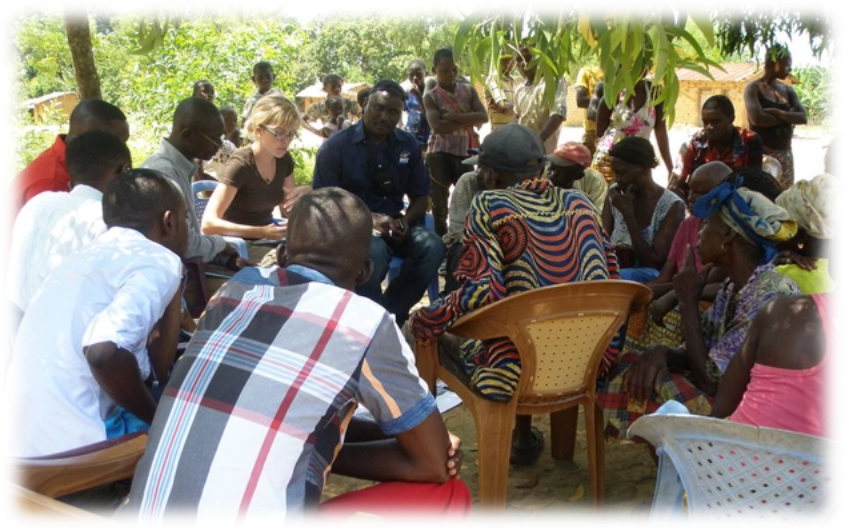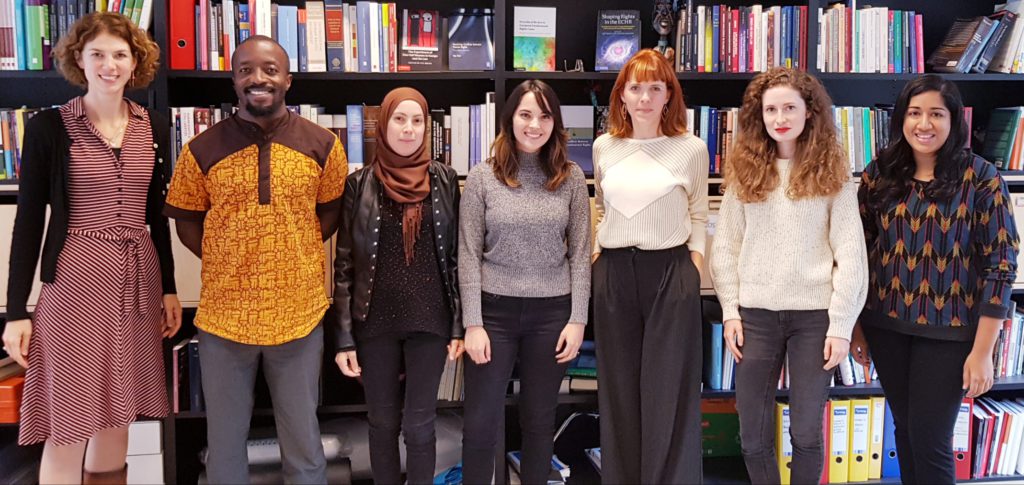This project studies the long-term and unforeseen effects of victim participation in transitional justice processes. It takes the cases of Tunisia, Guatemala, the DRC and Cambodia to map current and best practices, and to make recommendations for more victim-sensitive approaches to transitional justice.
Read a Q&A about this project here, or visit the Justice Visions website for more information.
Principal Investigator: Prof. Dr. Tine Destrooper
Sponsored by ERC Starting Grant ERC-2018-STG- 804154
Period: 2019-2024
Researchers: Safa Belghith, Christian Cirhigiri, Elke Evrard, Brigitte Herremans, Gretel Mejía, Sangeetha Yogendran


The question of how to serve justice, facilitate peaceful transitions and empower victims of past large-scale abuses is about as old as the field of transitional justice itself. Increasingly, academics and practitioners are turning to participatory approaches as a promising way to make advances regarding each of these issues. An oft-cited benefit of victim participation in transitional justice processes is that it allegedly increases the legitimacy of these processes by rendering them more locally relevant, and that it empowers participants and turns them into ambassadors of the justice process.
However, little is known about how to organize this participation in practice or under which conditions alleged benefits (for individual victims-participants or for society at large) are likely to materialize. As a result, participation is often organized in an ‘add-victims-and-stir’ way with little critical reflection about potential unforeseen or long-term effects.
Because formal and informal transitional justice processes often face significant practical, financial and political constraints, it is crucial to better understand how participatory approaches can be developed in ways that contribute to a positive and lasting legacy, especially in a world where a vast number of societies is emerging from violent conflict, and where failure to engender durable justice and peace may lead to more instability and ultimately violence.
 The main objective of this project is therefore threefold, (1) to conduct a systematic empirical analysis of the scope, nature and role of victim participation in transitional justice processes, (2) to develop the critical victimology framework that is currently missing, and (3) to establish how this framework can be used to conceptualize victim participation in ways that contribute to transitional justice’s goal of engendering just, stable and secure societies.
The main objective of this project is therefore threefold, (1) to conduct a systematic empirical analysis of the scope, nature and role of victim participation in transitional justice processes, (2) to develop the critical victimology framework that is currently missing, and (3) to establish how this framework can be used to conceptualize victim participation in ways that contribute to transitional justice’s goal of engendering just, stable and secure societies.
A multi-disciplinary approach, rooted in legal studies, social psychology, political science, public administration and anthropology is proposed, which allows for a multi-dimensional understanding of these issues, both in academic and in practical terms. The research findings from this project will have the potential to enhance the stability of the global society by creating scientific results and turning them into measurable impact. They will provide policy-makers with empirically supported expertise on pressing policy issues, and, because of the project’s attention to international institutions as well as local contexts, findings will enrich our scholarly understanding of the interaction between these policy levels and apply to many post-conflict settings worldwide.
